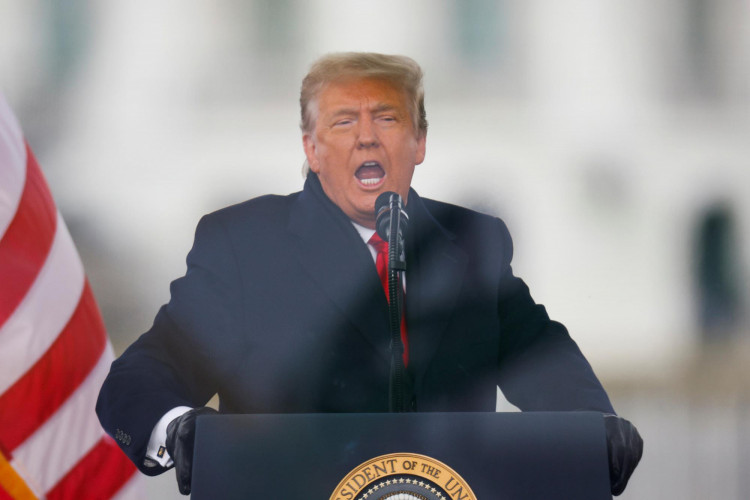During a rally in Aurora, Colorado, former President Donald Trump unveiled "Operation Aurora," a new initiative aimed at deporting illegal immigrant gang members, specifically targeting the Venezuelan gang Tren de Aragua. Trump's proposal, which invokes the Alien Enemies Act of 1798, is designed to dismantle criminal networks of undocumented migrants operating within the United States. The announcement has stirred controversy, with local leaders in Aurora pushing back against Trump's characterization of their city as overrun by gang violence.
Trump's speech came in response to recent incidents involving members of Tren de Aragua in Aurora. Last month, surveillance footage captured gang members, armed with rifles and handguns, breaking into an apartment in the city and fatally shooting a man. Trump pointed to these events as evidence of what he described as a broader threat posed by illegal immigrants. "Our whole country will end up being like Detroit if we don't act now," Trump warned the audience, adding that his initiative aims to "dismantle every illegal migrant criminal network operating on American soil."
Aurora Mayor Mike Coffman quickly refuted Trump's claims, stating that the former president's portrayal of the city was exaggerated. "The reality is that the concerns about Venezuelan gang activity have been grossly exaggerated," Coffman said in a statement. He added that the incidents involving Tren de Aragua were limited to a few apartment complexes and did not reflect the safety of the broader community. "Aurora remains a considerably safe city," Coffman emphasized, extending an offer to Trump for a briefing with the town's police chief to clarify the situation.
Despite these assurances from local officials, Trump's campaign has doubled down on the need for tougher immigration policies. A senior Trump campaign official told Fox News Digital that Operation Aurora aims to use federal powers to prioritize the deportation of gang members like those belonging to Tren de Aragua. Trump's team cited newly released data from Immigration and Customs Enforcement (ICE) claiming that over 13,000 illegal alien convicted murderers are currently at large in the U.S.
Vice President Kamala Harris, speaking at a town hall in Arizona, also responded to Trump's comments, criticizing his approach to immigration as divisive and inflammatory. "My opponent, Donald Trump, yet again, has trashed another great American city," Harris said, adding that his rhetoric does little to address the root causes of migration or improve community safety. She accused Trump of exploiting fears for political gain while undermining bipartisan efforts to tackle the immigration crisis.
Critics have also pointed out that Trump's use of the Alien Enemies Act, a centuries-old law, to justify mass deportations could raise legal and ethical concerns. The law, part of the Alien and Sedition Acts of 1798, was originally intended for use during wartime to detain or deport nationals of enemy countries. Trump's proposal to apply this legislation to target undocumented migrants from Venezuela has sparked debate over its appropriateness and legality in modern contexts.
While Trump has framed Operation Aurora as a necessary step to restore law and order, Aurora's local law enforcement has been less convinced about the severity of the gang threat. Aurora Police Chief Vanessa Wilson recently stated that while gang-related crime is a concern, it has not reached the crisis levels suggested by Trump. "Our data does not support the claim that the city is overrun by violent gang members," Wilson said, highlighting ongoing efforts to address gang activity through community policing and partnerships.
Trump's focus on gang violence is part of a broader immigration agenda that includes plans to finish constructing the southwestern border wall, reinstate a travel ban on predominantly Muslim countries, and expand mass deportations. His rhetoric during the rally has drawn criticism for using incendiary language, such as referring to the border situation as an "invasion" and claiming that migrants are "poisoning the blood of our country."
The Biden administration has also taken action against Tren de Aragua, with the Treasury Department designating the gang as a "significant transnational criminal organization" in July. This designation blocks all property and assets owned by the gang in the U.S. Additionally, the State Department has offered rewards of up to $12 million for information leading to the arrest of the gang's leaders.






